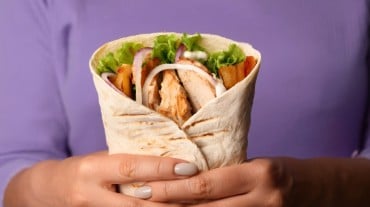Fatty liver disease occurs when excess fat builds up in the liver, often due to poor diet, lack of exercise, or unhealthy lifestyle habits. To reverse fatty liver, make sure you maintain a healthy weight, limit alcohol, eat more protein, and stay active.

If you are overweight or obese, one of the most effective ways to reverse fatty liver is by losing weight, especially by reducing belly fat. Losing just 5–10 percent of your body weight can significantly reduce the amount of fat stored in your liver. However, do not go for drastic diets or quick fixes, as they can backfire. Instead, focus on slow and steady weight loss through healthy eating and regular exercise. Image courtesy: Adobe Stock

Even if your fatty liver is not caused by alcohol, drinking can still make it worse. Alcohol is processed by the liver, and too much of it can increase fat buildup and cause liverinflammation. Cutting down on alcohol or quitting it altogether can give your liver a chance to heal and function better. If quitting alcohol seems tough, start by reducing how often and how much you drink. Image courtesy: Adobe Stock

What you eat matters a lot when it comes to liver health. Choose foods that are rich in fibre, vitamins, and healthy fats. Fill your plate with whole grains, fresh vegetables, leanprotein, and healthy fats like those found in nuts and seeds. Avoid processed and sugary foods, as they can spike insulin levels and increase fat storage in the liver. Image courtesy: Adobe Stock

Adding more protein to your meals can support weight loss and help repair liver cells. Protein also helps you feel full for longer, so you are less likely to snack on unhealthy foods. Foods like eggs, tofu, fish, and chicken are great sources of protein that support your metabolism and reduce fat accumulation in the liver. If you are vegetarian, consume legumes, nuts, seeds, whole grains, soy products and vegetables like broccoli and spinach. Image courtesy: Adobe Stock

Regular physical activity helps your body burn fat, even the fat stored in your liver. And you do not need an intense gym routine to see results. Even a 30-minute brisk walk, swim,or dance session can make a big difference. The key is to stay consistent and choose an activity you enjoy. Exercise also helps improve insulin sensitivity, which is important for liver health. Image courtesy: Adobe Stock

Fruits such as grapefruit, berries, apples, papayas, and kiwis are packed with antioxidants, vitamins, and fibre that can support liver function. Grapefruit has compounds that protect the liver, while berries are packed with antioxidants that reduce inflammation. Apples help flush out toxins, and papayas aid digestion. Eating citrus fruits rich in vitamin C is also beneficial because they help detox your body. However, since fruits contain natural sugars, it is important to enjoy them in moderation. Image courtesy: Adobe Stock

Certain foods can worsen fatty liver by increasing fat and sugar levels in the body. So, try to cut back on fried and oily foods, sugary drinks and snacks, foods with trans fats, white bread, pasta and refined carbs, and packaged and processed foods. These unhealthy foods can contribute to insulin resistance and inflammation, leading to more fat storage. Instead, eat home-cooked meals and focus on following a healthy diet. Image courtesy: Adobe Stock